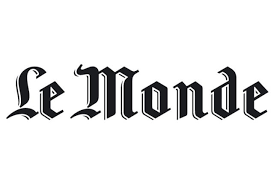Document type : Opinion piece published in Le Monde (subscriber edition)
Author: Loïc Dombreval
Full text (not for distribution): Illegally-recorded videos expose a reality that needs to be openly condemned so that good farmers are not penalised and consumers are not left confused', says Loïc Dombreval, a veterinarian and LRM MP, in an article in Le Monde.
[ Some parliamentarians saw the "global security" Act, which was formally passed on 15 April 2021, the as an opportunity to propose amendments concerning the conditions in which animals are farmed and slaughtered in France. "Would you accept a camera in your bathroom to check if you turn off the tap when you brush your teeth? No ! " argued Senator Laurent Duplomb (LR) during the debate, to persuade his colleagues to adopt his amendment, which aims to strengthen sanctions in the event of intrusions onto farms or industrial premises.
For Mr Duplomb and the parliamentarians who voted for his amendment proposing that such illegal actions should incur a penalty of three years' imprisonment and a fine of 45,000 euros, the recording of illegal videos on livestock farms is ultimately about private property rights. On 21 May 2021, this proposed amendment was finally deemed unconstitutional. Beyond the technical and legal reasons for its abandonment, the time has come for us to ask ourselves hard questions as a society and to look beyond the prism of illegality and violation of private property in our approach to these illegal recordings.
It is clear that these videos have shown themselves to be much more than mere sets of misleading clandestine images. Each one of them caused a media furore when it was broadcast and they have gradually led to a crisis of confidence among French viewers concerning the way animals are farmed and slaughtered.
The videos have made people aware
They have also provided the grounds for administrative measures and investigations: the government closure of the Alès abattoir [Gard] and the launch of an investigation in 2015; the immediate suspension by Didier Guillaume, who was Minister for Agriculture at the time, of an abattoir in Boischaut [Indre] in 2018, and then another in 2020 in Rodez; an investigation by the authorities of a quail farm in 2019 in the Drôme; and the revoking of the local licence of an abattoir in the Cher in 2020.
These videos have been accepted as evidence and processed by the Ministry of Agriculture and by our Courts system because they are something more than a violation of private property: they are also testimony of farming and slaughtering practices that are in breach of our laws. They are images obtained unlawfully and illegally, revealing farming practices that are themselves illegal, illegal practices that are ultimately sanctioned by government. [rest of article for subscribers only]




